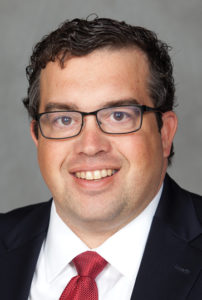By Steve Brawner
© 2017 by Steve Brawner Communications, Inc.
What do the emerging aerial drone industry and the health care system have in common? They both would benefit from a section of the Constitution that’s largely been ignored in recent years.
That would be the 10th Amendment, which says, “The powers not delegated to the United States by the Constitution, nor prohibited by it to the states, are reserved to the states respectively, or to the people.”
The political science term for this is “federalism.”
I’m bringing this up after reading that Arkansas’ Sen. Tom Cotton and three other senators – two of them Democrats – have introduced a bill that would let states and communities govern aerial drones flying under 200 feet of airspace.
In a co-written column in the Washington Times, Cotton and Sen. Mike Lee, R-Utah, said the nation’s drone industry has been stuck in a hover as it awaits regulations from the slow-moving Federal Aviation Administration. Meanwhile, Chinese manufacturers are beginning to dominate the developing market. Cotton and Lee argued that since it will take forever for the federal government to act, states and communities should be given control. A drone flying less than 200 feet over someone’s farm is a local issue, not a national one.
They’re right. Drones will be a growing part of our lives in the coming years. States and communities will have different uses and different levels of comfort with a technology that is both beneficial and invasive, so local solutions are preferable to a one-size-fits-all approach dictated by Washington.
Cotton also had a hand in a bigger piece of legislation, the Senate health care reform bill. He was one of 13 senators who crafted it behind closed doors but still hasn’t said if he supports the final product.
That’s because the bill is a mess and will never pass. After seven years of demanding Obamacare be repealed, Republicans are being forced to admit they never had a plan to replace it or fix its problems – and no, we can’t go back to the “old system,” either.
Health care is hard. Public policies result in allocating resources, but with health care, what do we want to limit, and for whom? Do we want more government involvement, which means more government control, or do we want health care decisions to be driven by the profit motive? Should health care be refused to people who refuse to work, or should they be treated in emergency rooms, or just given health care for free? As President Trump said earlier this year, “Nobody knew that health care could be so complicated.”
Thankfully, the United States has a valuable feature: its united states. The Senate health care bill does give states some flexibility – just as the Affordable Care Act that created Obamacare did – but maybe this is one issue requiring truly massive experimentation in 50 separate laboratories. Recently, California legislators seriously considered a statewide single payer system where the state government would pay everyone’s health care bills. They couldn’t make the numbers add up, but it’s good that we live in a country where widely varying alternatives can be considered – alternatives such as Arkansas Works, where the government buys insurance for poor people. Through experimentation, maybe an affordable health care system will arise that reflects American values but doesn’t cost 18 percent of the gross domestic product. We must try something, because what we’ve been doing the past few decades isn’t sustainable.
It’s not just drones and health care where a re-emphasis on federalism would be good for the country. As the United States has become more polarized, congressional gridlock is no longer a temporary problem but a permanent reality, meaning long-term problems can’t be solved or often seriously debated. The situation is leaving too much power in the hands of the one official who can act unilaterally, the president, and in the federal bureaucracy. In America, we’re supposed to address issues through deliberative legislative consensus. And that process still happens in state governments.
America’s diversity is one of its strengths. Let states like Arkansas and California try to address more problems on their own, learn from each other, offer lessons for the federal government, and in the end, still be a little different.
It’s OK. We don’t all have to be exactly the same. It’s in the Constitution, after all – about a third of the way through the amendments.
